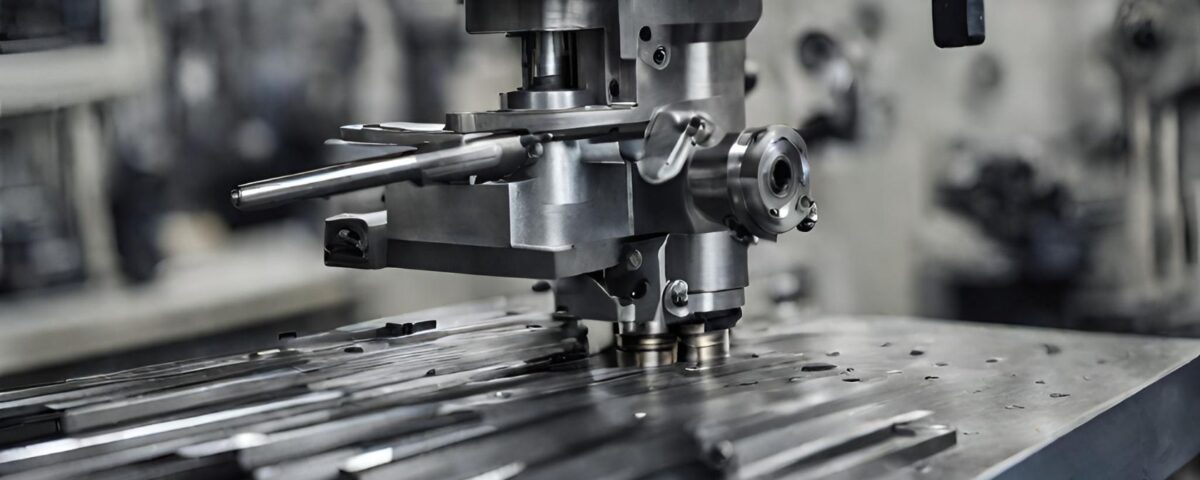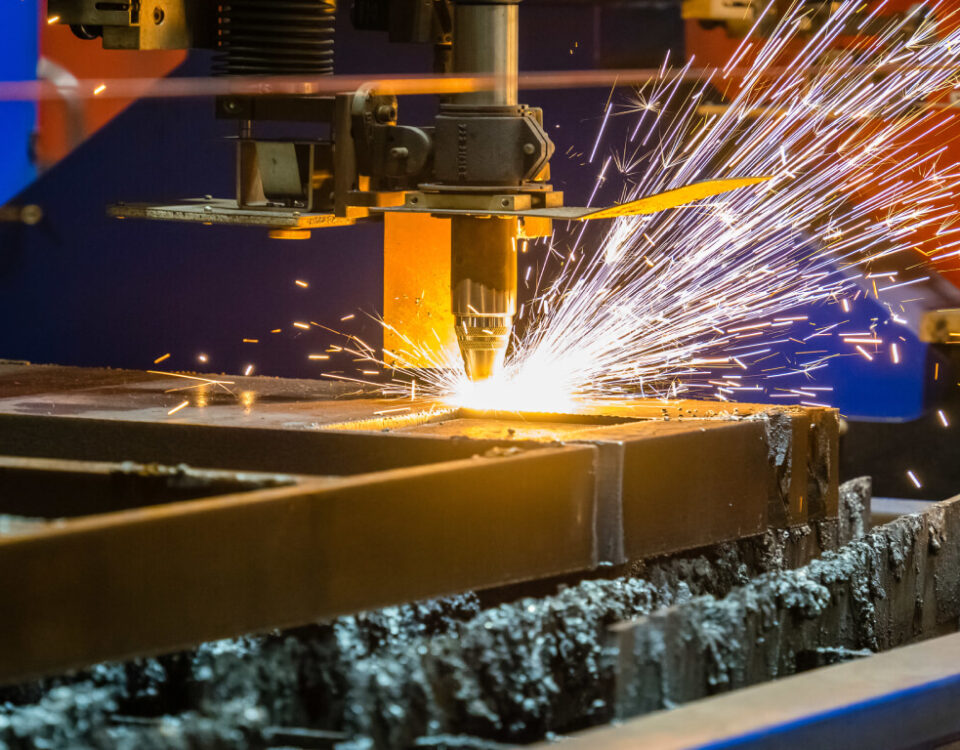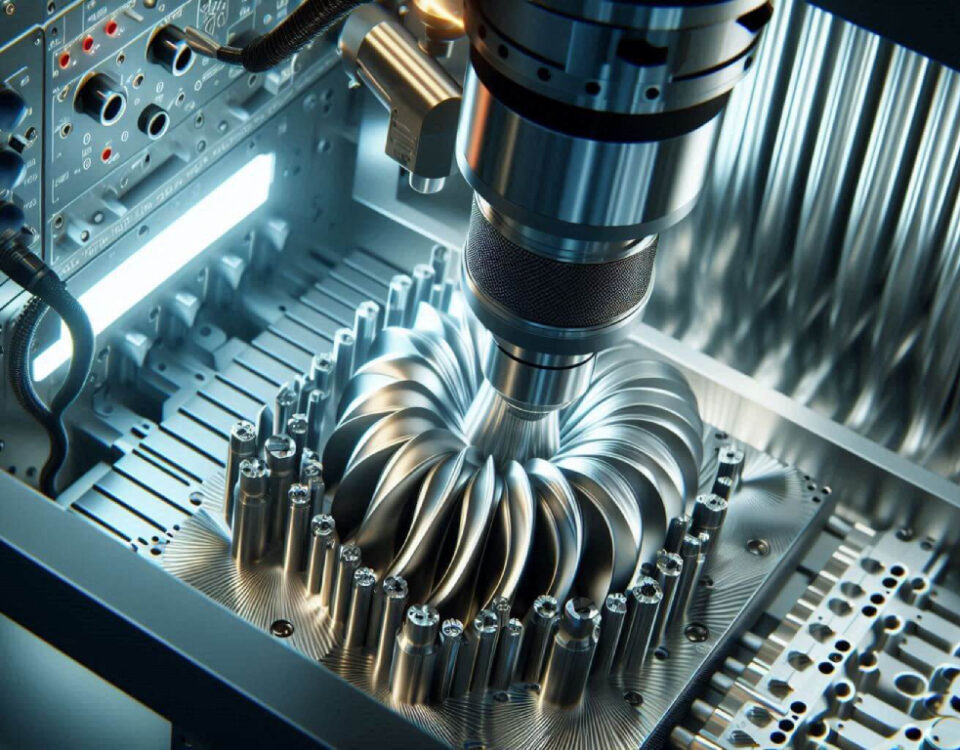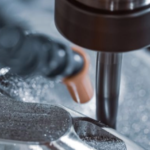
Popular Machining Design Instruments and Manuals
30 April 2024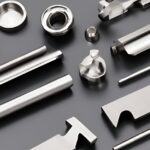
The Ultimate Guide to Stainless Steel Parts: Everything You Need to Know
7 May 2024In the fast-paced world of manufacturing, precision is everything. Every fraction of an inch matters, and accuracy can make or break a company's reputation. That's why more and more manufacturers are turning to precision machinery to streamline operations and maximize efficiency.
Precision machinery combines advanced technology, high-level automation, and state-of-the-art engineering to create a manufacturing process that is faster, more accurate, and more reliable than ever before. Whether it's a CNC machine, a robotic arm, or a cutting-edge 3D printer, precision machinery is revolutionizing the industry.
By unlocking the power of precision machinery, manufacturers can achieve unprecedented levels of productivity, reduce wastage, and deliver products of unparalleled quality. With the ability to perform complex tasks with incredible speed and precision, these machines provide a competitive edge that propels businesses to the forefront of their industries.
In this article, we will explore the various types of precision machinery available, the benefits they offer, and how companies can leverage them to boost efficiency and accuracy in their manufacturing processes. Get ready to discover the future of manufacturing and unlock your company's true potential.
The Importance of Efficiency and Accuracy in Manufacturing Processes
Efficiency and accuracy are two critical factors in manufacturing processes. In today's highly competitive market, companies need to produce high-quality products at the lowest possible cost and in the shortest time. This requires streamlined operations that eliminate unnecessary steps, minimize wastage, and maximize productivity. It is here that precision machinery plays a crucial role.
Precision machinery enables manufacturers to achieve optimal efficiency by automating repetitive tasks, reducing human error, and increasing production speed. With the ability to perform complex operations with high accuracy and consistency, these machines minimize the need for manual intervention, saving time and resources. This allows companies to produce more in less time, meet customer demands quickly, and stay ahead of the competition.
Moreover, accuracy is equally important in manufacturing processes. Even the smallest deviation from the desired specifications can lead to product defects, customer dissatisfaction, and costly rework or recalls. Precision machinery ensures that each component or product is manufactured with the highest level of precision, meeting the required specifications and quality standards. This not only enhances customer satisfaction but also saves costs associated with rework, scrap, or warranty claims.
In summary, efficiency and accuracy are crucial for manufacturers to stay competitive, meet customer demands, and ensure high-quality products. Precision machinery provides the means to achieve these goals by streamlining operations, reducing errors, and delivering consistent results.

Common Challenges in Achieving Efficiency and Accuracy in Manufacturing
While efficiency and accuracy are essential in manufacturing, achieving them is not without challenges. Manufacturers often face several obstacles that hinder the optimization of their processes. Some of the common challenges include:
- Complexity of Operations: Manufacturing processes can involve numerous complex operations, requiring expertise and precision. As the complexity increases, so does the likelihood of errors and inefficiencies. It becomes challenging to manage and control each step, resulting in delays, rework, and quality issues.
- Human Error: Humans are prone to making mistakes, especially when performing repetitive tasks. Even the most skilled operators can make errors, leading to variations in output quality and accuracy. Human error can be costly, both in terms of time and resources, and can result in product defects, waste, and customer dissatisfaction.
- Inconsistent Quality: Maintaining consistent quality across multiple production runs can be challenging. Small variations in material properties, machine settings, or environmental conditions can lead to deviations in product quality. Ensuring uniformity and consistency becomes crucial, especially in industries where precision is essential, such as aerospace, medical, or automotive.
- Time and Cost Constraints: Manufacturers face constant pressure to reduce lead times and production costs while maintaining quality standards. This requires efficient utilization of resources, minimizing wastage, and optimizing processes. However, achieving this balance can be difficult, as increasing efficiency can sometimes lead to compromises in accuracy, and vice versa.
Overcoming these challenges is essential to maximize efficiency and accuracy in manufacturing processes. Precision machinery offers solutions to address these issues and unlock the full potential of manufacturing operations.
Strategies for Maximizing Efficiency in Manufacturing with Precision Machinery
Precision machinery provides manufacturers with a wide range of strategies to maximize efficiency in their processes. By automating tasks, optimizing workflows, and leveraging advanced technologies, companies can achieve significant improvements in productivity. Here are some strategies to consider:
- Automation: Precision machinery, such as CNC machines and robotic arms, can automate repetitive tasks, reducing the need for manual labor and saving time. By programming these machines to perform specific operations, manufacturers can achieve consistent results, eliminate human error, and increase production speed.
- Workflow Optimization: Analyzing and optimizing manufacturing workflows can help eliminate bottlenecks, reduce idle time, and improve overall efficiency. By identifying areas of improvement and streamlining processes, manufacturers can achieve smoother operations, faster cycle times, and better resource utilization.
- Real-time Monitoring and Control: Precision machinery often comes with advanced monitoring and control systems that provide real-time data on machine performance, production rates, and quality metrics. By leveraging this data, manufacturers can identify inefficiencies, address issues promptly, and make data-driven decisions to improve overall efficiency.
- Standardization and Training: Establishing standardized processes and providing training to operators ensure that tasks are performed consistently and accurately. By setting clear guidelines, manufacturers can minimize variations in output quality, reduce rework, and improve overall efficiency.
By implementing these strategies and leveraging the capabilities of precision machinery, manufacturers can unlock significant efficiency gains in their manufacturing processes. The result is increased productivity, reduced costs, and improved customer satisfaction.
Techniques for Improving Accuracy in Manufacturing with Precision Machinery
In addition to maximizing efficiency, precision machinery also offers techniques to improve accuracy in manufacturing processes. By eliminating human error, ensuring consistent quality, and leveraging advanced technologies, manufacturers can achieve high levels of accuracy. Here are some techniques to consider:
- Computer-Aided Design (CAD) and Computer-Aided Manufacturing (CAM): CAD and CAM software enable manufacturers to design and program parts and products with high precision. By using these tools, manufacturers can create accurate digital models, simulate manufacturing processes, and generate toolpaths for precision machinery, ensuring accurate production.
- Sensor Technology: Precision machinery often incorporates sensor technology to monitor and control various aspects of the manufacturing process. Sensors can measure factors such as temperature, pressure, or position, providing real-time feedback and enabling adjustments to ensure accuracy.
- Advanced Inspection Systems: Precision machinery can be equipped with advanced inspection systems, such as vision systems or coordinate measuring machines (CMMs), to perform accurate and automated inspections. These systems can detect defects, measure dimensions, and ensure compliance with specifications, enhancing accuracy and reducing the reliance on manual inspections.
- Closed-Loop Control Systems: Closed-loop control systems use feedback mechanisms to continuously monitor and adjust machine parameters during the manufacturing process. By comparing actual measurements with desired values, these systems can make real-time adjustments, ensuring accurate production and compensating for any variations or disturbances.
By applying these techniques and leveraging the capabilities of precision machinery, manufacturers can achieve unprecedented levels of accuracy in their manufacturing processes. This leads to improved product quality, reduced rework, and enhanced customer satisfaction.
Case Studies of Successful Implementation of Precision Machinery in Manufacturing
To understand the real-world impact of precision machinery on efficiency and accuracy in manufacturing, let's explore a few case studies of successful implementation:
- Automotive Manufacturing: In the automotive industry, precision machinery plays a vital role in various production processes, such as machining engine components or assembling complex systems. CNC machines, robotic arms, and automated assembly lines have significantly improved efficiency by reducing cycle times, eliminating errors, and enhancing overall quality.
- Aerospace Manufacturing: Precision machinery is crucial in aerospace manufacturing, where precision and accuracy are paramount. CNC machining centers, equipped with multi-axis capabilities, enable manufacturers to produce complex parts with tight tolerances. This improves overall accuracy, reduces rework, and ensures compliance with stringent industry standards.
- Medical Device Manufacturing: Precision machinery has revolutionized medical device manufacturing, enabling the production of intricate and precise components. 3D printers, for example, allow the creation of patient-specific implants or surgical instruments with high accuracy. This not only improves patient outcomes but also reduces surgical time and enhances the overall efficiency of the manufacturing process.
These case studies demonstrate how precision machinery can transform manufacturing operations, delivering significant improvements in efficiency and accuracy. By leveraging the capabilities of these machines, companies can stay competitive, meet customer demands, and achieve excellence in their respective industries.

Tools and Technologies for Enhancing Efficiency and Accuracy in Manufacturing
To unlock the full potential of precision machinery, manufacturers can leverage various tools and technologies that enhance efficiency and accuracy in their manufacturing processes. Here are some examples:
- Advanced Software Solutions: Manufacturing Execution Systems (MES) and Enterprise Resource Planning (ERP) software provide comprehensive control and visibility across the entire manufacturing process. These systems enable real-time data collection, analysis, and decision-making, optimizing workflows and enhancing efficiency.
- Internet of Things (IoT) Integration: IoT technology allows the connectivity and integration of machines, sensors, and systems, enabling real-time monitoring, data exchange, and control. By harnessing the power of IoT, manufacturers can achieve predictive maintenance, optimize machine performance, and improve accuracy in their processes.
- Artificial Intelligence (AI) and Machine Learning (ML): AI and ML technologies can analyze large volumes of data, identify patterns, and make predictions or recommendations. By applying these technologies to precision machinery data, manufacturers can optimize processes, detect anomalies, and improve accuracy, leading to more efficient and reliable manufacturing operations.
- Augmented Reality (AR) and Virtual Reality (VR): AR and VR technologies enable immersive and interactive experiences, allowing operators to visualize and interact with virtual representations of machines, products, or processes. These technologies can improve training, reduce errors, and enhance accuracy in manufacturing operations.
By adopting these tools and technologies, manufacturers can enhance the efficiency and accuracy of their manufacturing processes, taking full advantage of the capabilities of precision machinery. This allows them to deliver high-quality products, meet customer demands, and drive business growth.
Training and Skills Development for Utilizing Precision Machinery in Manufacturing
While precision machinery offers significant advantages in terms of efficiency and accuracy, it is essential to invest in training and skills development to fully utilize these technologies. Operators and technicians need to understand the capabilities of precision machinery, learn how to program and operate them, and troubleshoot any issues that may arise. Here are some key aspects to consider:
- Technical Training: Training programs should focus on the technical aspects of precision machinery, including machine operation, programming, maintenance, and troubleshooting. This ensures that operators have the necessary knowledge and skills to utilize the machines effectively and efficiently.
- Safety Training: Precision machinery can involve complex operations and potential hazards. Safety training is crucial to ensure that operators understand the risks associated with operating the machines and are trained to follow proper safety protocols. This reduces the likelihood of accidents and injuries in the workplace.
- Continuous Learning: Technology in the manufacturing industry is constantly evolving. It is essential to provide ongoing training and development opportunities to keep operators up-to-date with the latest advancements in precision machinery. This ensures that they can leverage new features and functionalities to maximize efficiency and accuracy.
- Cross-functional Collaboration: Training programs should encourage cross-functional collaboration and knowledge sharing. Operators should have opportunities to interact with engineers, designers, and other stakeholders to gain a holistic understanding of the manufacturing process and how precision machinery fits into the overall operations.
By investing in training and skills development, manufacturers can empower their workforce to fully utilize the capabilities of precision machinery. This leads to improved efficiency, enhanced accuracy, and a more productive and engaged workforce.
Future Trends in Precision Machinery for Manufacturing
As technology continues to advance, precision machinery will continue to evolve, offering manufacturers new possibilities for improving efficiency and accuracy. Here are some future trends to watch out for:
- Integration of Artificial Intelligence: Precision machinery will increasingly incorporate AI capabilities, enabling machines to learn, adapt, and make autonomous decisions. This will optimize processes, detect anomalies, and further enhance efficiency and accuracy.
- Advanced Robotics: The use of advanced robotics in manufacturing will continue to grow. Collaborative robots (cobots) will become more prevalent, working alongside human operators to perform complex tasks with high precision. This will improve flexibility, productivity, and overall efficiency.
- Additive Manufacturing Advancements: Additive manufacturing, or 3D printing, will continue to advance, enabling the production of complex geometries with high accuracy. This will revolutionize industries such as healthcare, aerospace, and automotive, offering new possibilities for customization and rapid prototyping.
- Digital Twins and Virtual Manufacturing: Digital twins, virtual representations of physical machines or processes, will become more prevalent. Manufacturers will leverage digital twins to simulate and optimize manufacturing operations, reducing time to market, and enhancing efficiency and accuracy.
These future trends in precision machinery hold great potential for manufacturers to further unlock efficiency and accuracy in their processes. By staying informed and embracing these advancements, companies can continue to stay ahead of the competition and deliver products of unparalleled quality.
Conclusion
In conclusion, precision machinery is vital to achieving maximum efficiency and accuracy in manufacturing. While such equipment requires significant upfront investment, the long-term benefits make it well worth the cost. With computer-controlled tools like CNC machines, manufacturers can program incredibly precise movements and cuts that would be impossible for humans to perform manually. This precision translates into parts and products with tighter tolerances, less variability, and higher consistency. The automation enabled by precision machinery also boosts throughput and production capacity. Rather than relying on operators working at varying speeds, automated processes can run 24/7 at optimal rates. This maximizes productivity and ensures capacity keeps pace with demand. Of course, precision equipment requires skilled technicians to program, operate and maintain it. Investing in training and talent is crucial. With the right expertise driving these machines, manufacturers gain the agility to quickly shift between product configurations and specifications. This flexibility allows for smaller batches and custom orders that would be cost-prohibitive with manual methods. Adopting more automated, intelligent and interconnected systems facilitates data collection and analysis too. This visibility enables continuous optimization and control, taking precision and efficiency to the next level. In summary, advanced precision machinery powered by capable staff is the key to unlocking manufacturing’s full potential. The benefits for quality, productivity and flexibility make the investment well worth it for manufacturers seeking a competitive advantage.

